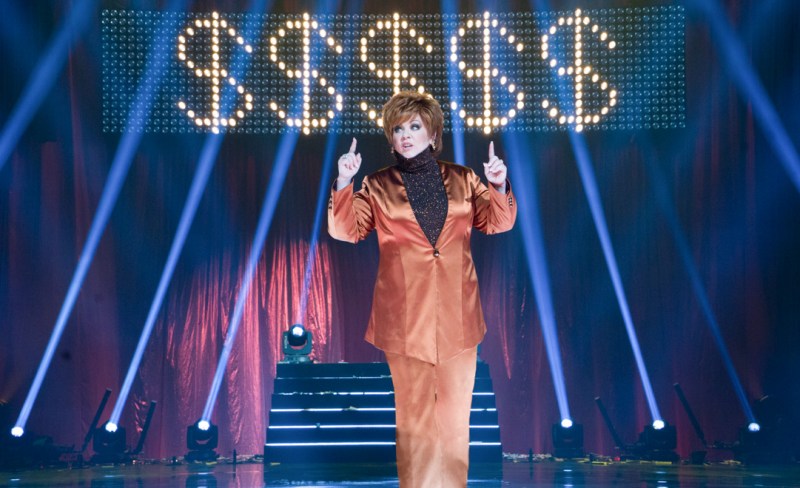The disappearance of the active camera in contemporary mainstream comedy is no laughing matter, though “The Boss” does its scattershot best to find humor in stasis. Melissa McCarthy’s latest movie combines fits of absurdity with a cliché plot that trades empty awareness in for a 99-minute runtime stretched to its breaking point. Combining a resolute blankness of shot/reverse-shot direction and make-or-break verbal gags, the movie wastes McCarthy’s substantial talents in favor of monotonous images and storylines.
“The Boss” focuses on one of America’s richest, Michelle Darnell (Melissa McCarthy), a pseudo-Trumpian figure capable of filling arenas with the sweat and applause of desperate entrepreneurs. Michelle utilizes a mix of popstar showmanship and capitalist ‘truth-telling’ to inspire and exploit others from one deal to the next. These efforts obscure her upbringing: Before becoming wealthy and ubiquitous, Michelle was an unwanted Dickensian orphan left again and again at the roadside by desperate parents. After being charged with insider trading, Michelle loses her wealth and heads to a cushy richies’ prison, where she finds herself friendless except for former assistant Claire (Kristen Bell), who begrudgingly gives Michelle a place to stay. Together Michelle, Claire, and Claire’s daughter Rachel (Ella Anderson) form a makeshift family in pursuit of belonging and entrepreneurial spirit.
McCarthy (“Spy”, “Bridesmaids”) is one of the most talented comedic performers working today, and her verbal skill remains intact even in an uneven project like this. She’s an apt fit for the part of capitalist-learning-to-love, capable of fast-talking insult comedy and glimpses of emotional reality.
Most of this, however, is lost amidst nonsensical plotting and an absent visual style. Perhaps director Ben Falcone (also McCarthy’s husband) intended for the film’s flat visual style to allow for a richness of improvisation, but there are scenes in “The Boss” without any comedic bend. In the first thirty minutes, many of the humorous situations appear as set-ups for punchlines that the film’s three screenwriters (McCarthy, Falcone and Steve Mallory) mostly forgo.
Some of those jokes and laughs eventually do arrive, mostly as McCarthy insults a litany of targets, from hyper-involved parent Helen (Annie Mumolo) to old business flame Renault (Peter Dinklage). Thanks to McCarthy’s dexterous delivery, some of these jokes land (though they’re quickly rehashed to the point of staleness), and for a time it seems the film might become a minor lark full of emergent performances in the Adam McKay tradition (“Anchorman,” “Talladega Nights”). Unfortunately Falcone doesn’t share the visual spark and thematic depth that make McKay’s best comedies work. The film mimics McKay with music video-like slow motion and an “Anchorman”-inspired Girl Scout fight that nearly succeeds, but never strays into welcome absurdist territory.
Prime example: The stilted characterization of Dinklage’s Renault stems from a barely explored obsession with samurai culture and his past relationship with Michelle, who he feels betrayed him in their days as romantically involved, cocaine-addled executives. A perfunctory flashback of the pair doing cocaine makes this perfectly clear, as we watch their history portrayed in the same explicatory fashion already conveyed in the present. Why go back at all? The sequence doesn’t really have a joke and should be much more fun that it is. Instead, though, it’s just another idea among many wasted by cursory execution and character motivations that appear only when needed.
“The Boss” has the makings of a worthwhile studio comedy. What really works in “The Boss” is McCarthy insulting and surprising at the same time, but the film forgets to package both elements into a convincing whole. It boasts a talented ensemble (Cecily Strong, Kristen Schaal, Timothy Simons, Margo Martindale, Cedric Yarbrough, among others) who — apart from Strong and the sometimes-stilted Yabrough — are given almost nothing to do. In the end, we’re left with empty digital image after empty digital image, which McCarthy must awaken with shocking words and the occasionally inspired touch.
Contact Connor Huchton at chuchton ‘at’ stanford.edu.
